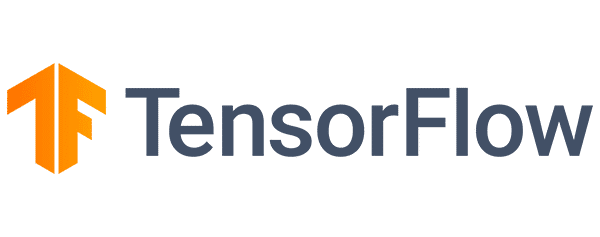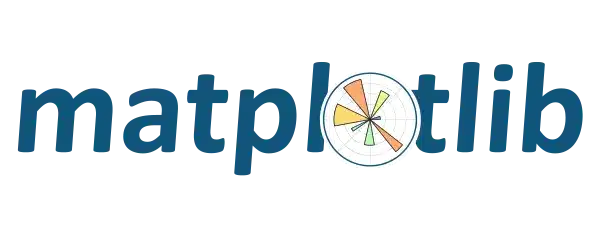World
Class Instructor
1:1 with
Industry Expert
400+
Global Hiring
55%
Avg. Salary Hike
- Overview
- Course Details
- Syllabus
- FAQ
Acquire Key Infrastructure Skills: Master IT Management, Earn Certification, Launch Your IT Infrastructure Career!
Elysium Certified IT INFRA MANAGER – Training Course offers comprehensive training to equip you with critical IT infrastructure management skills. The course includes CompTIA Hardware A+ and CompTIA Network+ (N10-008) training. Our program is designed to ensure you gain the expertise needed for effective IT infrastructure management. Completing these modules provides you with 100% placement assurance, ensuring you are job-ready for a successful career in IT.
2.2
Version
180 Hrs
Duration
45 Hrs
Theory
135 Hrs
Practical
Version
2.2
Duration
65 Hours
Theory
12 Hours
Practical
65 Hours
- Real-world IT Infrastructure Projects
- Personalized coordinator.
- Trainer feedback.
- Trainer availability post sessions.
- Get your staff certified.
- Certificate from governing bodies.
- Recognized worldwide
- Hands on assignment
- Master IT infrastructure fundamentals, including network administration, server management, and virtualization.
- Dive into advanced concepts such as cloud computing, IT automation, and disaster recovery.
- Learn to implement efficient and secure IT systems and networks.
- Gain expertise in infrastructure design and performance optimization.
- Understand and apply IT policies, compliance, and best practices.
- Develop practical skills through hands-on labs and real-world project simulations.
Top companies offer this course to their employees
Course was selected for our collection of top-rated courses trusted by businesses worldwide.





Salary
PER ANNUM
₹ 8.5 L
Job Growth
Current Month
15%
Offer Jobs
2026
7,000
The Elysium Certified IT Infra Manager program offers learners the opportunity to master the most important skills and tools used by IT infrastructure managers today. Start your journey in the field of IT infrastructure management and learn about network administration, cloud computing, virtualization, and more with the help of experienced instructors. Learners will emerge prepared to manage and optimize real-world IT systems and networks. Here are some of the skills you will need to learn if you want to become an IT infrastructure manager.
The IT Infra Manager course teaches you to master the concepts of IT infrastructure management. Through this training, you will learn Network Administration, Server Management, Cloud Computing, Virtualization, IT Automation, and Disaster Recovery.
- IT Infrastructure Management is the backbone that supports and maintains the technology environment.
- It involves the comprehensive management of IT systems and networks across organizations.
- System Administration ensures that all IT services are running smoothly and efficiently.
- IT Infrastructure Managers analyze and optimize IT operations to derive meaningful outcomes.
- IT Infrastructure is the foundation upon which modern businesses and their technologies are built.

Our Training Program Benefits
- Live, interactive training by experts.
- Curriculum that focuses on the learner.
- Challenge-based, hands-on project.
- Opportunities for team building.
- Cost- saving training.
- Convenient for your employees.
- Completely tailor-made curriculum.
Chapter-1 Fundamentals Of Testing
- Test Objectives
- Testing and Debugging
- Testing's Contributions to Success
- Testing and Quality Assurance (QA)
- Errors, Defects, Failures, and Root Causes
- Test Activities and Tasks
- Test Process in Context
- Testware
- Traceability between the Test Basis & Testware
- Roles in Testing
- Test Planning
- Test Monitoring & Control
- Test Analysis
- Test Design
- Test Implementation
- Test Execution
- Test Completion
Chapter-2 Testing Throughout The Software Development
- Verification Vs. Validation
- Sequential Model
- Incremental and iterative Model
- Impact of the Software Development Lifecycle on Testing
- Software Development Lifecycle and Good Testing Practices
- DevOps and Testing
- Shift - Left Approach
- Retrospectives and Process Improvement
- Test Levels
- Test Types
- Confirmation Testing and Regression Testing
Chapter-3 Static Testing
- Work Products Examinable by Static Testing
- Value of Static Testing
- Difference Between Static Testing and Dynamic Testing
- Reviews Process Activities
- Roles and Responsibilities of Reviews
- Review Types
- Success Factors For Reviews
Chapter-4 Test Analysis And Design
- Equivalence Partitioning
- Boundary Value Analysis
- Decision Table Testing
- State Transition Testing
- Use Case Testing
- Statement Testing and Statement Coverage
- Branch Testing and Branch Coverage
- The Value of White - Box Testing
- Error Guessing
- Exploratory Testing
- Checklist Based Testing
- Collaborative User Story Writing
- Acceptance Criteria
- Acceptance Test - Driven Development (ATDD)
Chapter-5 Managing The Test Activities
- Purpose and Content of a Test Plan
- Tester's Contribution to Iteration and Release Planning
- Entry Criteria and Exit Criteria
- Estimation Techniques
- Test Case Prioritization
- Test Pyramid
- Testing Quadrants
- Risk Definition and Risk Attributes
- Project Risks and Product Risks
- Product Risk Analysis
- Product Risk Control
- Metrics Used in Testing
- Purpose, Content, and Audience for Test Reports
- Communicating the Status of Testing
- Configuration Management
- Defect Management
Chapter-6 Test Tools
- Asana Tool_free
- JIRA Tool
- Bugzilla Tool
- Question Bank
- Mock, Mco
- Software Testing Life Cycle
- Alpha Testing + Beta Testing
- Benefits and Risks of Test Automation
Chapter-7 Introduction Of Software Testing
- What is Software Testing?
- What is Quality?
- Importance of Testing
- Tools used for Testing
- Manual and Automation Testing
- Principles of software testing
- SDLC and SDLC Phases
- Waterfall Model
- V Model
- Spiral Model
- Iterative Model
- Agile Model
- One Tier Architecture
- Two Tier Architecture
- Three Tier Architecture
- N-Tier Architecture
- What is STLC
- Entry and Exit Criteria
- STLC Phases
- Requirement Analysis
- Test Planning
- Test Design
- Test Execution
- Sign off
- Test Scenario Preparation
- Test Case Preparation
- Test Environment and Test Data Preparation
- Requirement Traceability Matrix
Chapter-8 Basic Concept Of Software Testing
- What is Software Testing?
- Test Process
- Test Levels
- Testing Techniques used in Levels of Testing
- White Box Testing Technique
- Black Box Testing Technique
- Unit Testing
- Integration Testing
- System Testing
- Functional Testing
- Non Functional Testing
- User Acceptance Testing
- Testing Types
- Functional Testing
- Whitebox Testing
- Blackbox Testing
- Positive Testing
- Negative Testing
- Beta Testing
- Live Environment Testing
- Smoke Testing
- Sanity Testing
- Regression Testing
- Formal Testing
- Informal Testing
- Monkey Testing
- Re-Testing Testing
- Risk Based Testing
- Non Functional Testing
- Performance Testing
- Load/Stress Testing
- Usability Testing
- Accessibility Testing
- Security Testing
- What is Test Scenario
- Setting Up Trello
- Registration Test Scenarios
- Web pages Sign-up Test Scenarios
- Login Test Scenarios
- Search Functionality Test Scenarios
- Test Case Writing
- How to Write Test cases using Google Sheets
- Sign-up Valid Test Cases
- Invalid Sign-up Test Cases
- Username Test Cases
- Email Test Cases
- Password Test Cases
- How to Write a Bug Report
- Difference Between Landscape & Portrait Mode
- Types of Defects
- Taking Screenshots for the Defect Report
- Video Recording For the Defect Report
Chapter-9 Agile Testing
- What is Agile
- Why we are using Agile
- Advantages of Agile
- Overview
- Agile Scrum
- Why we go for Agile?
- Agile Manifesto and Scrum
- Roles Involved in Agile
- Terminologies used in Agile
- Agile Ceremonies
- Spring Grooming
- Spring Planning
- Daily Scrum Meeting
- Spring Review
- Spring Retrospective
- Agile Artifacts
- Kanban
- Adaptive Project Framework (APF)
- Extreme Project Management (XPM)
- Introduction of Mobile Testing
- What is Mobile Application Testing?
- Types of Mobile Applications
- Difference Between Mobile Testing & Web Testing
- Types of Mobile Devices
- Challenges of Mobile Testing
- Mobile Analytics Data
Chapter-10 Api Testing With Postman
- What is Postman
- Installation Process
- Request Builder
- Create & Save Requests
- POST Requests
- Writing Tests
- Collection Runner
- Authorization & Authentication
- What is Performance Testing
- Concept of Load Generation
- Creating Load Profiles
- How to Install JMeter
- Thread Group
- Samplers
- Listeners
- Adding Blazemeter Plugin
- Recording Scripts using Blazemeter
- Replaying Recorded Scripts
- Average & Median
- Introduction
- Response Time, Throughput, Utilization & Robustness
- Performance Test Environment
- Serial & Parallel Execution of Threads
- User Defined Variables
- Action After Sample Error
- Controllers
- Loop Controller
- Throughput Controller
Chapter-11 Java
- Introduction
- Environment Setup
- Sample Java Code
- Getting input from User
- Arithmetic Operations
- If Statement
- If Else if
- Nested If
- Comparing More than One Condition
- Switch Case
- For Loop
- While Loop
- Do While Loop
Chapter-12 Object-Oriented Programming Using Java
- Introduction
- Structure of OOPS (Class, Method, Object)
- Inheritance
- Polymorphism
- Encapsulation
- Abstraction
- Exception Handling
Chapter-13 Black Box
- What is Black-Box Testing
- Equivalence Partitioning
- Boundary Value Analysis
- Finding Defects in a Live Project
- Decision Table Testing
- State-Transition Testing
Chapter-14 Whitebox
- JBlackbox Testing
- What is Black-Box Testing
- Equivalence Partitioning
- Boundary Value Analysis
- Finding Defect in a Live Project
- Decision Table Testing
- State-Transition Testing
Chapter-15 Selenium
- Automation means
- Why and when we go for automation
- Automation tools
- Advantages and disadvantages of automation
- Criteria for automation
- Fundamentals of test automation
- Automation Vs Manual testing process
- Automation Frameworks
- What is selenium tool
- User of selenium
- Features of selenium tool
- Advantages and disadvantages of selenium
- Installation setup
- Selenium IDE
- Selenium RC
- Selenium Web Driver
- Selenium Grid
- Web driver architecture
- Web driver Feature
- Web driver VSRC
- Web driver Installation
- Web driver commands
- Running test on chrome
- Running test in Firefox
- Running test on IE
- Running test on safari
Chapter-16 Locators
- ID
- Name
- Link text
- Partial link text
- Class name
- Tag name
- Absolute XPath
- Relative XPath
- Dynamic XPath
- Contains XPath
- Text XPath
- Text Contains XPath
- Attribute with Contains
- Following
- Ancestor
- Child
- Preceding
- Following-sibling
- Parent
- Descendant
Chapter-17 Web Elements
- What are web elements in Selenium
- Different types of web element
- Operations performed in web elements
- How to locate web element in web page
- Different web element methods
- Difficulties while handling web elements
- Handling waits
- Fetching a webpage
- Locating elements and sending user inputs
- Clearing the user inputs
- Fetching data over any web element
- Performing click event
- Radio button and check box
- Navigating browser in forward and backward direction
- Refresh and reload the webpage
- Closing windows and closing browser
- Drag and drop
- Mouse hover action
- Right click and double click
- Keyboard action by using Robot class
- JavaScript executor
- Handling drop down
- Handling of window
- Handling of alert
- Handling I Frames
- Handling web table and web calendar
- Screenshot
Chapter-18 Frame Work
- What is a Framework?
- Need of Framework
- Types of Frameworks in Selenium
- What is TestNG?
- Installation of TestNG
- Features of testing and Types of annotations
- Priority & invocation count
- Rerun for failed test cases
- Parallel execution
- Grouping
- How to set assert in testing
- Dependencies and configure Maven project
- @ Data Provider using Apache POI (Excel sheet)
- Report generations
Chapter-19 Python
- What is Python
- Why do we need Selenium
- Selenium with Java and Python (Pros & Cons)
- Program Structure
- Basic programming in Python
- - Data Type
- - Collection
- Function in Python
- Modules
- Simple class and objects
- Example programs
- Installation setup
- Introduction to WebDriver
- Accessing forms in WebDriver
- Accessing link and table
Chapter-20 Automation Framework
- Pytest
- Create your first test care
- Run Multiple test care
- Group multiple test care
- Assert creation
- Pytest mark, skip
- Parallel testing
- Pytest fixtures
- Unit test
- HTML report creation
Chapter-21 Cucumber
- Installation and setup of Cucumber
- Writing and running your first Cucumber test
- Understanding feature files, scenarios, and steps
- Implementing step definitions in various programming languages (e.g., Java, Ruby, JavaScript)
- Parameterization and data tables in step definitions
- Reusing step definitions across scenarios
- Tagging scenarios and features
- Using hooks for setup and teardown
- Conditional execution of scenarios based on tags
- Using backgrounds to eliminate duplicate steps
- Scenario outlines for data-driven testing
- Implementing hooks for setup and teardown
- Integrating Cucumber with Selenium WebDriver for web application testing
- Writing step definitions for interacting with web elements
- Best practices for structuring Cucumber tests in Selenium projects
Chapter-22 Katalon
- Overview of Katalon Studio
- Understanding its features and capabilities
- Installation and setup
- Test case creation
- Object Repository management
- Test suite organization
- Data-driven testing
- Basics of web testing
- Recording and playback of web tests
- Web element identification techniques
- Handling dynamic elements
- Advanced web testing techniques
Chapter-23 Soap Api
- Understanding what APIs are and why they are important in software development.
- History and evolution of SOAP.
- Key features and characteristics of SOAP.
- Comparison with other API protocols like REST.
- Understanding the structure of SOAP messages.
- Components of the SOAP envelope.
- Exploring the purpose and structure of SOAP headers and bodies.
- How to include additional information in SOAP messages.
- Introduction to WSDL.
- Creating and understanding WSDL documents.
- Developing SOAP-based web services.
- Consuming SOAP APIs in applications.
Chapter-24 Appium
- Understanding the need for mobile automation.
- Overview of Appium and its architecture.
- Installation of Appium and its dependencies.
- Installing necessary software like Java Development Kit (JDK), Android SDK, Xcode (for iOS testing), Node.js, etc.
- Configuring the environment variables.
- Starting and stopping the Appium server.
- Understanding the server logs.
- Configuring server settings.
- Identifying elements using various locators like ID, Name, XPath, CSS selectors, etc.
- Handling dynamic elements.
- Android and iOS specifics.
- Configuring devices/emulators/simulators.
- Installing/uninstalling apps.
- Setting up capabilities for test execution.
- Understanding different capabilities for Android and iOS platforms.
- Automating user interactions like tapping, swiping, zooming, etc.
- Dealing with alerts and dialogs.
What is the duration of the Elysium Certified Testing Expert course?
The course duration is typically 12 weeks, with flexible learning options to accommodate different schedules.
Do I need any prior experience in software testing to enroll in this course?
No prior experience is required. This course is designed to cater to beginners as well as professionals looking to enhance their skills.
What certification will I receive upon completing the course?
Upon successful completion, you will receive the Elysium Certified Testing Expert certification, recognized globally.
Are there any prerequisites for enrolling in this course?
Basic knowledge of software development and programming is beneficial but not mandatory.
How is the course delivered?
The course is delivered through a combination of online lectures, hands-on labs, real-world projects, and interactive sessions with instructors.
Will I have access to course materials after the course is completed?
Yes, you will have lifetime access to all course materials, including video lectures, assignments, and additional resources.
What kind of support is available during the course?
You will have access to a dedicated coordinator, regular feedback from trainers, and post-session support to address any questions or challenges.
Are there any real-world projects included in the course?
Yes, the course includes several real-world projects to provide practical experience and help you apply the concepts learned.
Can I get my team certified through this course?
Yes, we offer customized training programs for teams. Please contact our support team for more details on group certifications.
How can I enroll in the Elysium Certified Testing Expert course?
You can enroll through our website by completing the registration form and selecting your preferred course schedule. For assistance, our support team is always available.

- Elysium Certified IT INFRA MANAGER - Training Course Crash
- Duration: 180 Hrs
- Level: Beginner
- Days: 45 Days
- Chapters: 11
- Language: English
- Certifications: Yes
- Code: EAPL/CRASH/CRTC01
- Course Code: EACCC
- Sub Category: App Development
Data Science Features

Instructor-led Live Sessions
Elysium Academy experts cultivate a focused learning environment by presenting learners with real-world industry problems and emphasizing solution-oriented approaches.

Live Training Sessions
Throughout our certified training, experienced instructors and industry professionals conduct remote sessions to impart their extensive knowledge to learners.

Flexible Curriculum
Professionals have the opportunity to acquire comprehensive knowledge in cutting-edge digital marketing through specialized certification programs.

Expert Support
Our technical support staff is available 24/7 through a ticketing system to address any inquiries you might have.

Certification
Upon completion of the course and assigned tasks, you will receive a certificate from Elysium Academy, acknowledging your achievement as a data scientist

Assignments
Before proceeding to the next lesson, it is necessary to complete a quiz at the end of each lesson to assess your comprehension.
What Will You Learn?










Our Latest Blogs
Best Artificial Intelligence Course to Build Your AI Career
Table of Contents Artificial Intelligence Course is no longer a futuristic concept—it is actively transforming how the world works…
Which Digital Marketing Skills Are Highest-Paying | Top Digital Marketing Course Institute Guide
In today’s fast-evolving digital economy, businesses of all sizes are relying heavily on online marketing strategies to grow their brand,…
AI Powered Digital Marketing Course – 12 Must-Know AI Trends in Digital Marketing
In an increasingly digital world, the demand for smart, data-driven, and automated marketing solutions is rising at a breakneck pace.…
Related Courses
AI Mastery For Entrepreneurs Programme
AI Mastery for Entrepreneurs Programme, designed for visionaries and business leaders. This program focuses on using AI for market research,...
AI Engineering For Developers
Advanced AI Engineering program crafted for developers aiming to build intelligent solutions. This course covers machine learning, deep learning, and...
AI Power Digital Marketing
Unlock the power of online marketing with our Digital Marketing Fundamentals Training Course. Master SEO, SEM, content marketing.

Recommend your friends/colleagues and earn gift vouchers worth up to INR 1000/-!
Invite friends to join our community, and receive valuable gift vouchers as a token of appreciation for each successful referral. Spread the word about our referral program today and start earning rewards!





























